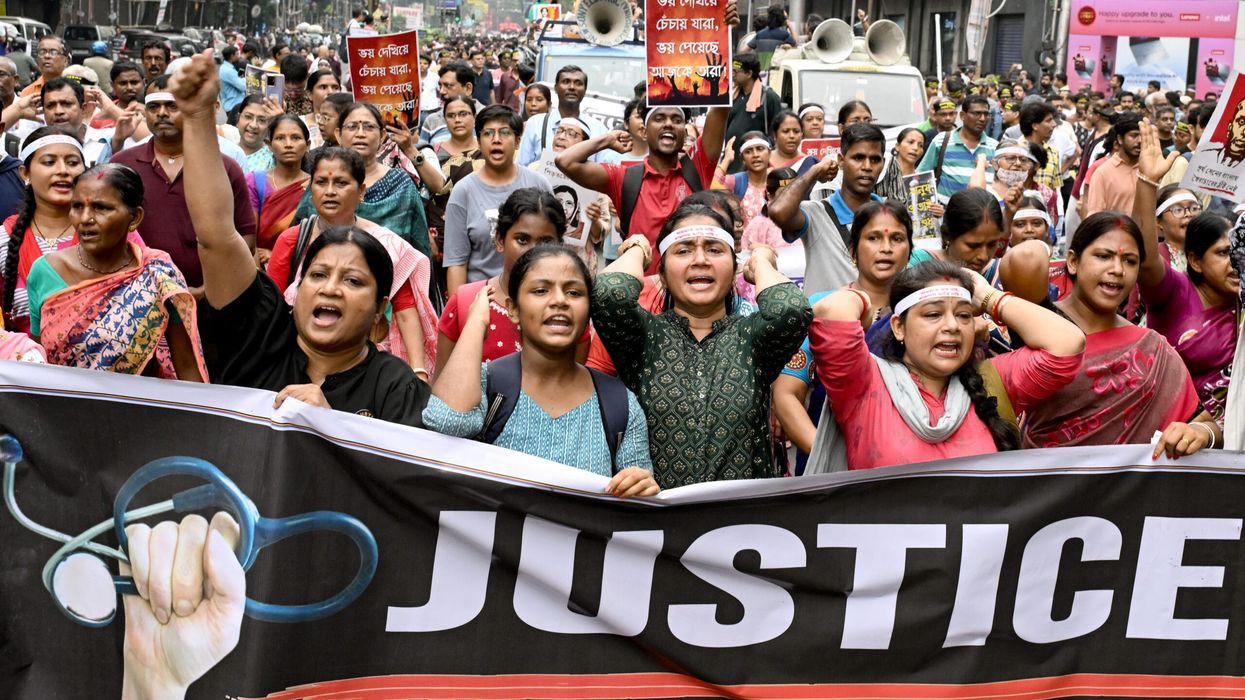A POLICE volunteer in India has been sentenced to life imprisonment for the rape and murder of a junior doctor at a government hospital in Kolkata.
Sanjay Roy, 33, was convicted on Saturday, with the sentence announced on Monday by Judge Anirban Das, who ruled that the crime did not qualify as a "rarest-of-rare" case warranting the death penalty.
The victim’s body was discovered on 9 August 2024, in a classroom at RG Kar Medical College and Hospital, sparking protests from junior doctors and widespread calls for better security at public hospitals.
The murder led to weeks-long demonstrations across the country, with demands for justice and stricter safety measures.
Rejecting Roy’s claims of being framed, the judge handed him a life sentence on charges of rape and murder, stating: “Life imprisonment, meaning imprisonment until death.”
Roy’s defence lawyer, Senjuti Chakrabarty, announced plans to appeal the verdict, seeking his acquittal.
The victim’s parents, who were present in the packed courtroom, expressed disappointment at the sentence, stating they had hoped for the death penalty.
Their lawyer, Amartya Dey, said they would explore further legal options. “We want justice, and we will not stop until all those responsible are held accountable,” said the victim’s father.
The case, investigated by federal police, was fast-tracked, with 128 witnesses listed and 51 examined during the trial.
The investigation had earlier categorised the crime as “rarest-of-rare,” warranting capital punishment, but the judge disagreed.
The brutal killing drew comparisons to India’s 2012 Delhi gang rape case, with activists, junior doctors, and citizens demanding harsher punishment.
Police intervened to prevent large protests from reaching the court, but demonstrations continued nearby, with chants of "Hang him, hang him."
Meanwhile, the West Bengal government, led by chief minister Mamata Banerjee, expressed dissatisfaction with the verdict, calling for the death penalty.
Opposition leaders, including Amit Malviya of the BJP, also criticised the judgment, saying: “Justice must not only be done but must also be seen to be done.”
Security concerns at hospitals remain a critical issue, with demands for stricter measures growing.
The case has reignited discussions about safety for healthcare workers and broader efforts to tackle violence against women in India.
(With inputs from agencies)




